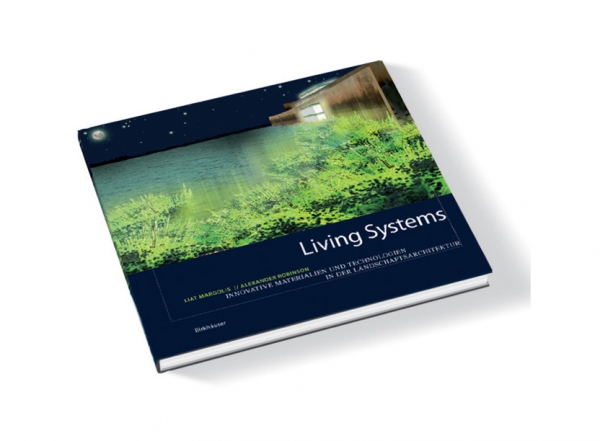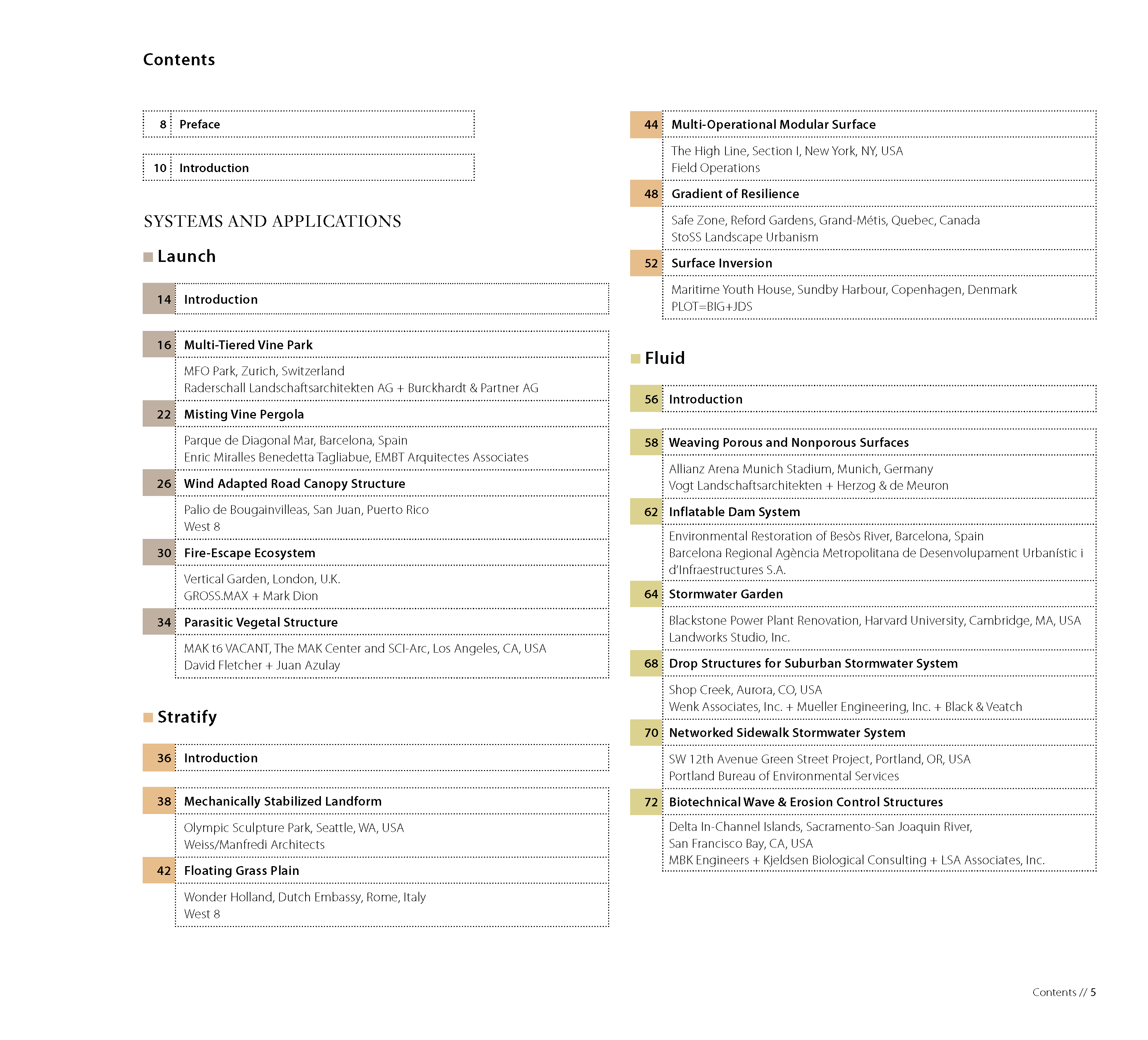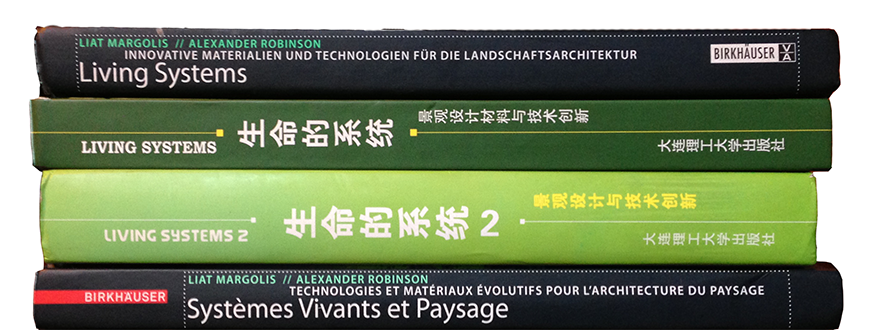Living Systems: Innovative Materials and Technologies for Landscape Architecture
by Alexander Robinson and Liat Margolis, BIRKHÄUSER, 2007

Living Systems surveys a wide array of innovative approaches to material technologies within the field of landscape architecture. The selected projects and materials exhibit a contemporary demand for technological landscapes and the collaboration between designers, engineers, scientists and ecologists. The book’s language proposes a synthesis between technology, theory, and art. It redefines the conventional boundaries of landscape materiality by focusing on its dynamic attributes, such as: growth, flow, metabolism, climate, and atmospheric phenomena.
Living Systems allows the reader to see how pragmatics and possible poetics operate in a design. On a level of methodological utility, Living Systems asserts the importance of using technology in a phenomenological manner to inform operational strategies in landscape design. On another level, Living Systems also makes clear that technology is a requisite part of the modern condition, which also conditions our experience and embraces the possibilities of our time.
–Eric Ellingsen, Landscape Journal




Reviews & Press: Eric Ellingsen, “Living Systems: Innovative Materials and Technologies for Landscape Architecture,” Landscape Journal 29:2-10, pp. 232-236, 2010
Patrick Curran, “Review of Living Systems: Innovative Materials and Technologies for Landscape Architecture.” Sustainable Design and Development Newsletter, American Society of Landscape Architects, 2008
“Living Systems: Innovative Materials and Technologies for Landscape Architecture” Science News 173. 3 (January 19, 2008): 47
Mason Currey, “New and notable books on architecture, culture, and design,” Metropolis Magazine, September 19, 2007
“Book Review: Living Systems,” Archidose, August 6, 2007
Available in English, German, French, and Chinese editions (including a Chinese counterfeit sequel).
Copyright oOR / LMLab, 2022 — Los Angeles, CA